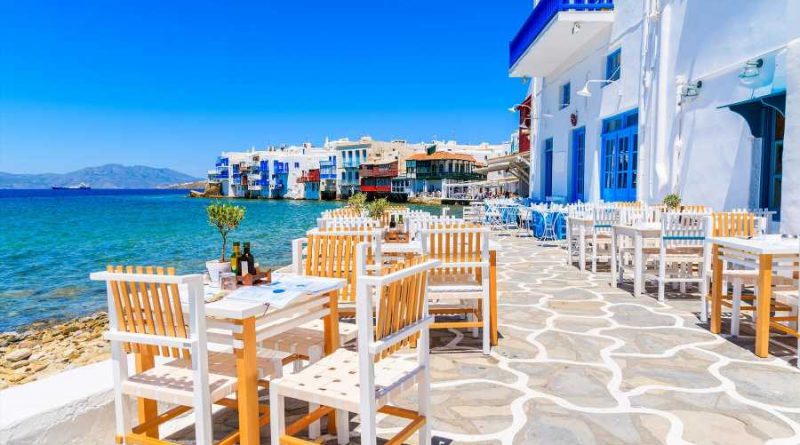Planning to Head to Europe This Summer? Heres What You Need to Consider
Since banning non-essential travel to Europe over a year ago, the head of the European Commission first announced on April 25 that Americans who’ve been fully vaccinated with an EU-approved vaccine can travel to Europe this summer. This means those who’ve been inoculated with Pfizer, Moderna, and Johnson & Johnson can start dreaming about wine tasting in Tuscany, stuffing themselves with chocolates in Belgium, and visiting fairy-tale castles. But travel advisors say there are some factors you may be overlooking in the midst of this excitement.
Load Error
“I was totally surprised that it came so early and was expecting Europe to open mid to late summer,” Kate Johnson, owner and lead travel advisor at Houston-based KJ Travel, says about the European Union’s (EU) announcement. “I think with a lot of these announcements, there are more questions than answers.” Johnson experienced an uptick in queries since the general population started to receive their final dose of vaccines. But she suggests one of the first things you should consider before planning a trip is your comfort level and personal risk threshold when it comes to traveling during a pandemic. Decide for yourself whether you’d be okay with having to wear a mask for eight hours on an international flight or while visiting a museum, or if you have to quarantine for a few days once you reach your destination. “Every traveler’s going to be different. And then you basically choose a destination based on what you’re comfortable with,” advises Johnson.
Whether or not you should book a trip to Europe this summer also depends on what you want your overall experience to be. “Places in the countryside and by the beach, like in Tuscany or the South of France, naturally lend themselves to social distancing, and these experiences have a better chance of being something that is more in line with a ‘normal’ visit,” explains Johnson. But if you were hoping to spend the summer visiting art galleries and museums, it’s best to wait. Popular tourist attractions and restaurants may not necessarily be open or must be reserved in advance to curb the spread of the virus. “My job right now is a lot of managing expectations and contingency planning,” says Johnson.
Client experience can also be heavily impacted as countries try to work out the kinks in the early stages of reopening, notes Allison Scola, Sicily travel specialist and owner of Experience Sicily. The hospitality industry in Italy, where international travelers have largely been banned since the start of the pandemic in March 2020, will need to regroup. “They need time to re-hire and train their staff, prepare their properties, re-open and re-stock restaurants that have been closed for months,” says Scola. “You’ll benefit from waiting because they’ll be much more ready for us to be there.”
“This is the summer to go beyond the obvious tourist sites and see more and do a hiking or cycling trip in a place that you never would’ve thought.”
Early travelers to Europe should consider taking a direct flight to their destination to minimize the possibility of route disruption, advises Johnson. A number of flights continue to be rerouted due to border closures, which sometimes result in last-minute flight cancellations. This means that while it’s possible to hop on an international flight to London for your layover, your connection to your final destination of Dubrovnik could be canceled with little warning, for example.
Each country in the EU still reserves the right to tweak its entry requirements depending on the coronavirus situation, meaning each country can ask for negative PCR tests or require quarantine despite your vaccination status. And in Italy, where it’s divided into 20 regions each with its own administration, varying regional restrictions are in place. To further minimize confusion and disruption of travel plans, Scola suggests travelers consider staying in one country or region within a country this summer, though it’s tempting to maximize your vacation time and airfare by country hopping. “This is the summer to go beyond the obvious tourist sites and see more and do a hiking or cycling trip in a place that you never would’ve thought,” suggests Scola.
For families planning a European getaway this summer, Johnson advises you to book something with a flexible cancellation policy because right now it’s still unclear about how entry requirements for a number of European countries will affect children. Until more information is released, consider destinations that don’t require quarantine, as well as ones that accept proof of negative COVID tests rather than ones that require proof of vaccination, like Greece and Croatia.
Johnson points out that one often overlooked factor in travel is insurance, which is especially important when traveling during a pandemic. Look for insurance that covers flight and hotel cancellations for any reason, as well as unexpected expenses in the event you test positive and have to quarantine abroad.
While the news is exciting for fully vaccinated Americans, it also comes at a time when COVID cases remain rampant in Europe, no thanks to variant strains. Scola suggests that eager travelers to Europe who are willing to be loosey-goosey and flexible with travel plans this summer will need to approach travel in a different way—with a more locally minded and experiential approach, which can be a side benefit that travelers don’t always think about.
Source: Read Full Article




